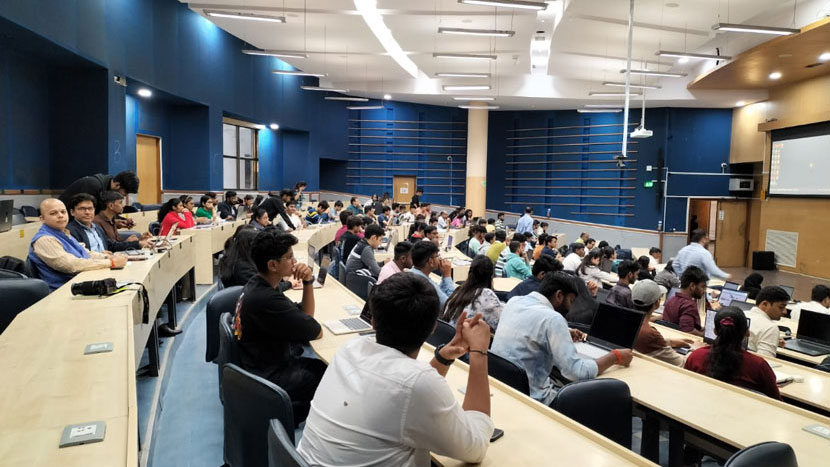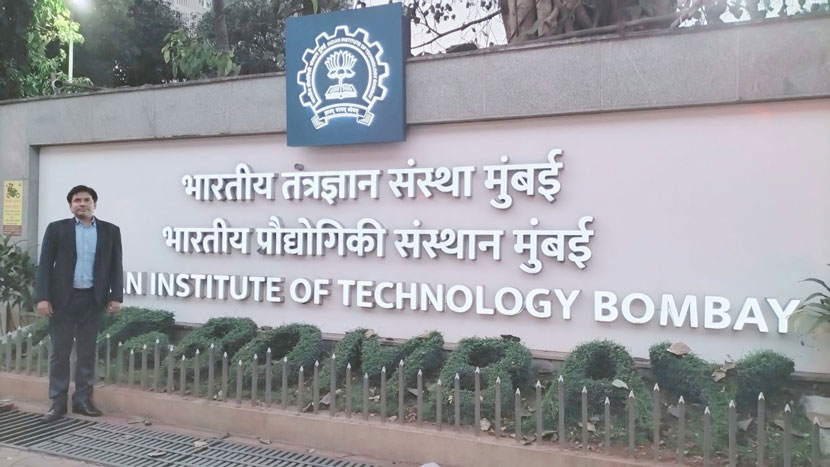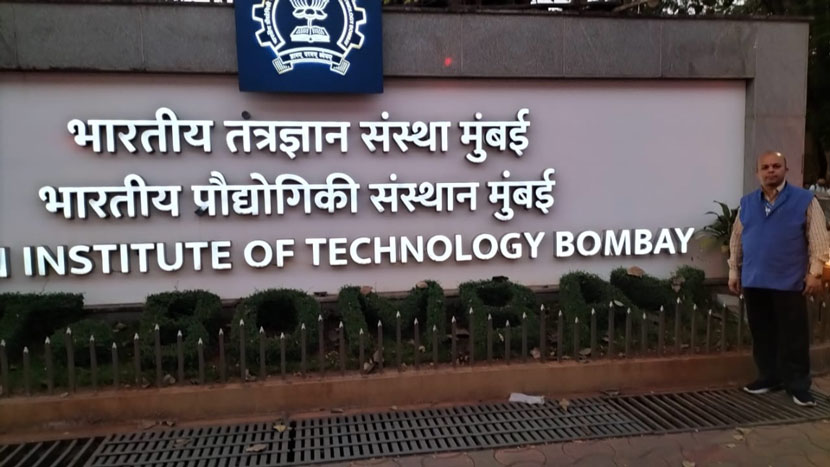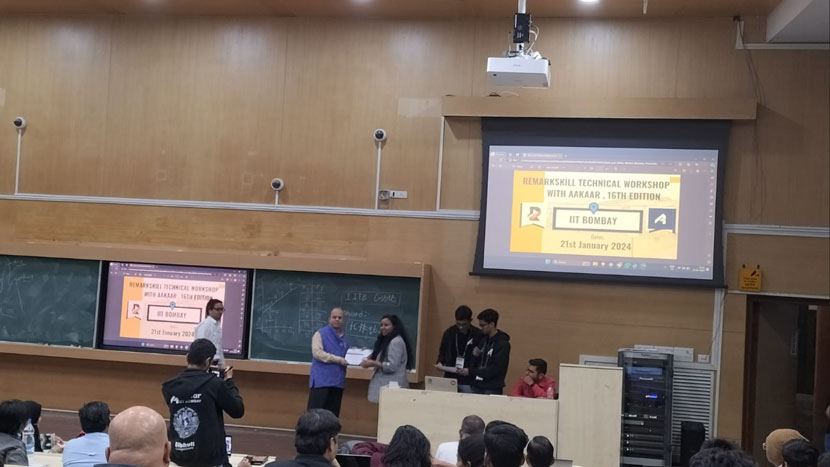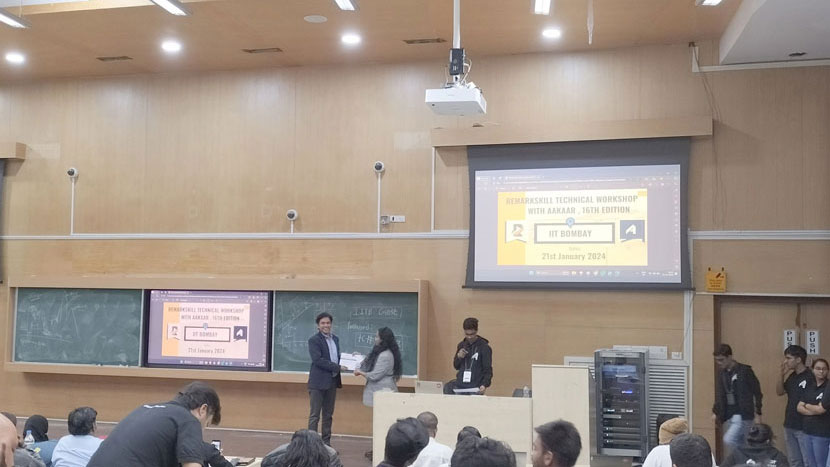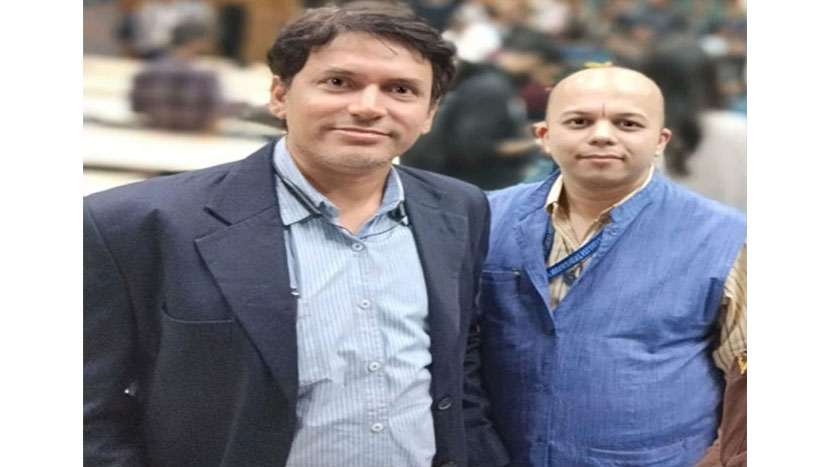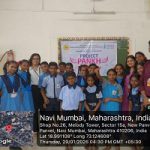Event Overview: Training was imparted on
- Artificial Intelligence (AI) and its relationship with data
- Machine Learning (ML) and understand its relationship with Artificial Intelligence
- Machine Learning approach and its relationship with data science
- Identifying the applications of Machine Learning
- Coding and use of programming language
Organiser of the Event: Aakaar, IIT Bombay
Participants of the event:
- Prof. Subhendu Bhattacharya
- Dr. Pushpendu Rakshit
Venue and Date: Lecture Hall complex of the Academic Section at Kanwal Rekhi Building of IIT Bombay, 20th – 21st January, 2024.
Event Flow
Day I: Event started with registration and welcome address. Keynote address covered digital economy, types of data, availability and applications of data. A great deal of knowledge was shared on Artificial Intelligence, Machine Learning, Deep Learning and Data Science. There was discussion on how AI, ML and DL are getting integrated in modern technological devices and software applications.
Day II: Revision and recapitulation of what were taught in the first day. There was a study of statistics and participation in the spot quiz contest, debate and discussion also. Extensive hands-on experience was gained on Google colab and python applications. The nuances of Numpy, Scipy, Pandas, Scikit learn, Matplotlib, Seaborn were elaborated on and got clarified with examples. Data analysis and interpretation was given due importance.
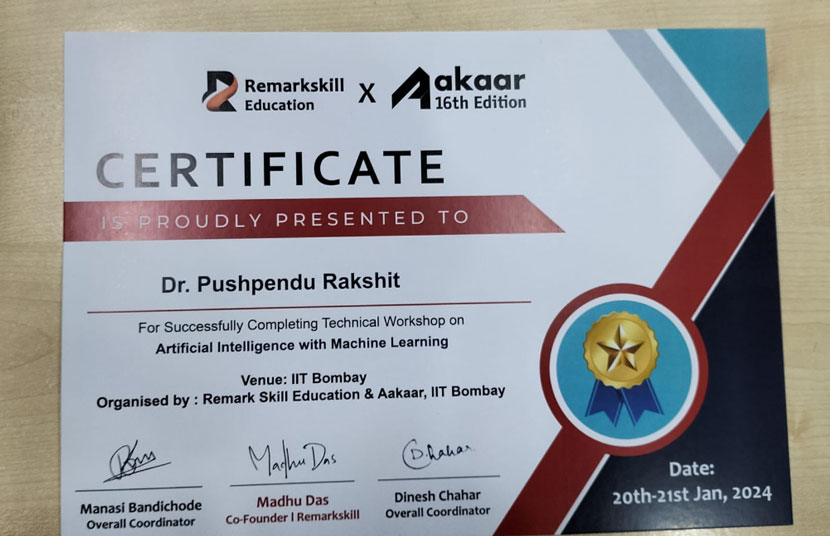
Objectives of Training Program
- To provide overview on Data Economy
- To clarify about the concept of structured data and unstructured data and various sources of them
- To discuss about the concept of Artificial Intelligence and AI in real world practices
- To share knowledge on Machine Learning and Deep Learning
- To describe about the relationship between Artificial Intelligence and Machine Learning
- To highlight key differences of traditional programming and ML programming
- To differentiate between data science and data analytics and different software tools used to work on them
- To differentiate between descriptive statistics and inferential statistics
- To describe about necessity of coding in programming language
- To explain about supervised learning, unsupervised learning, clustering, anomaly detection, regression and classification
- To discuss about probabilistic model and deterministic model
- To give hands on experience in Python, coding and Google Colab.
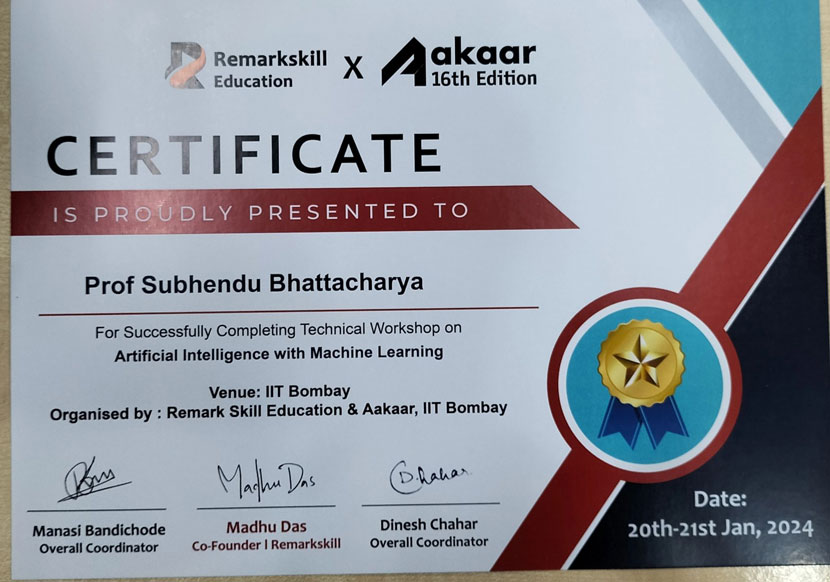
Feedback and Appreciation
Trainers gave feedback intermittently as evaluation happened all through the sessions. For event feedback online google sheet was shared.
Learning outcome
- Learning of various aspects of data classification, data cleaning, data presentation, data analysis and interpretation
- Concept of Data Economy
- Concept of AI, Generative AI, ML, DL and Data Science
- Various nuances of coding, programming language and application
- Learning of Python and Google Colab, data transfer and processing
- Simple Lenear Regression and Multiple Linear Regression
Conclusion
Two days training program concluded with felicitation, certificate distribution, vote of thanks, photo session and networking.

